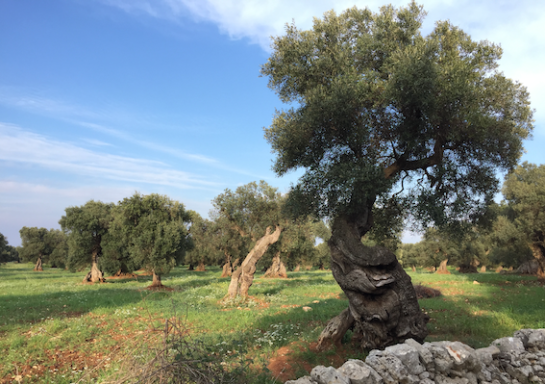
By Mihnea Tanasescu
The present moment is heavy with foreboding. Reading this probably made you think of several different things at once: the pandemic, climate change, biodiversity loss, pollution. And that is precisely what I mean: the present is charged with an overwhelming number of crises.
The current era, in geological terms, in still called the Holocene, but increasingly the term Anthropocene – the geological time defined by the aggregate activity of humans – has become established, precisely because it incorporates better the sense of urgency many feel with respect to human impacts on the environment. As a researcher, I cannot help but increasingly focus my work on trying to understand the implications of the Anthropocene for social and political life.
To this end, I try to anticipate the questions that will probably become most salient under current scenarios, such as what happens when ecological collapse is already a fact? How can social and political life respond to, and reconstitute itself after, an established socio-ecological order has disintegrated? The aim is to understand catastrophic events and to use these in order to propose new political concepts that can help rebuild after disaster has struck. In order to do so, I plan to dig deeply into one case of collapse and to build up one possible concept that can help navigate the ruins. I’ll explain these in turn.
In 2013, in the Salento, Apulia, the Southern tip of the heel of the Italian peninsula, a strange new phenomenon appeared: the leaves of olive trees would turn brownish and, very fast, the crown would entirely dry and the tree die. This region, like much of the Mediterranean, has forged an intimate cultural relationship with olive trees. The symbolic and cultural importance of these trees can hardly be exaggerated. However, within a very short time span, the Salento went from being the ecocultural repository of ancient olive trees to being an enormous, and enormously sad, cemetery of desiccated trunks.
The culprit for this unspeakable disaster has been identified as Xylella fastidiosa, a pathogenic bacterium that infects the xylem of the tree (the part that moves lymph around) and obstructs it. In the EU, it is classified as a deadly pathogen that immediately triggers strict quarantine measures. As soon as Xylella was identified, a whole legal and political apparatus was put in motion to eradicate sick trees.
Only that it didn’t work very well. Farmers were reluctant to allow government officials to uproot their trees. Government officials were themselves slow to respond and had to manage an enormous area with millions of potentially infected trees. A kind of pandemic regulatory apparatus for trees was set up and changed all the time (not unlike the human experience of Covid regulations), while popular groups formed and resisted the already incoherent government action. Eight years later, Xylella is advancing north at frightening speed, leaving behind devastation and distrust. At this point, it is a matter of time until it affects olive orchards far from Salento (where it has killed more than 90% of trees).
This case has been studied in two different ways so far. On the one hand, there are a number of studies on the pathogen itself, most of these trying to understand how to save infected trees, or how to prevent infection, to begin with (again, parallels with Covid are striking). A much smaller amount of research has been anthropological and sociological, focusing on the reasons for the profound mismatch between local and government responses. But there is still so much to do. As I see it, there are several different areas of research that have to be explored in order to use this case for understanding how to deal with similar crises to come. So far, researchers have looked at it in disciplinary ways: as a case of plant pathology, or of political contestation, or of legal classification. What has not happened is a comprehensive study of this (ongoing) case that looks at it in its complexity, and therefore tries to understand how disciplinary allegiances themselves contribute to conflict on the ground.
I try to do precisely this by interrogating the case from ecological, political, and legal points of view simultaneously. The idea is to map an ongoing case of collapse in order to understand what, and how, can be built in its aftermath. I adopt an interdisciplinary perspective, based on the collaboration between different ways of knowing, to build up a new concept that can help in other contexts as well. And that brings me to the second objective of the research: developing the concept of terrestrial politics as a candidate for recomposing livable worlds.
The terrestrial was first proposed by Bruno Latour as a way of moving knowledge and practice away from global-level, modernist approaches, and towards the particularities of places and the limits that they may impose. The outlines that he described for the terrestrial have to do with the need to think in fundamentally rooted terms: this territory, these people, these actions. The case of Xylella offers a tremendous opportunity for seeing how uprootedness contributed to the crisis (directives that have little to do with the lived reality of local farmers, for example), and for developing terrestriality further and in detail, as an alternative to the by now hollowed idea of sustainability.
Ecological collapse of the kind occasioned by Xylella cannot be merely reversed or engineered away, just like climate change is already a reality we have to learn to live with, under even the best-case scenarios. In other words, the very possibility of sustaining a status quo, whatever that may be, has disappeared. Instead, we need concepts that can accommodate the dizzying speed of ecological change that is becoming the norm. The concept of terrestrial politics is such a candidate, and my research uses the case of Xylella to develop it much further. There are, of course, many thorny methodological questions to navigate through, yet this case offers an urgent opportunity to think through ecological decomposition writ large.
The idea of decomposition has two meanings: on the one hand, it points towards disintegration and collapse, but on the other, it is the condition of life to come (hence its relation to compost). It would be tremendously gratifying to try, in the small way in which I can, to turn a case of disintegration into one of new possibilities. As my research advances, I’ll make sure to keep you updated on how Xylella is, despite the tremendous loss it has occasioned, also allowing us to think modes of living for an improbably flourishing future.
* Mihnea Tanasescu is a postdoctoral research fellow at the EDGE Programme since January 2021.

Add new comment